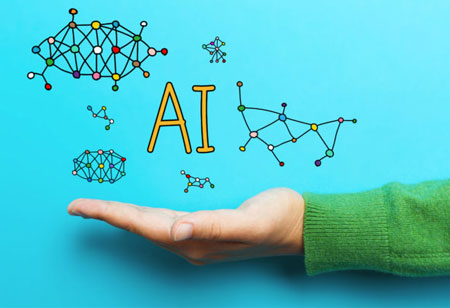THANK YOU FOR SUBSCRIBING
How Can Your Business Benefit From AI?
While human workers perform nuanced tasks. AI tools empower workers to enable machines to automate so that they are freed to utilize their reasoning skills and logic...

By
Apac CIOOutlook | Thursday, January 01, 1970
Stay ahead of the industry with exclusive feature stories on the top companies, expert insights and the latest news delivered straight to your inbox. Subscribe today.
While it was feared that AI would abolish the need for manual labor, people are still working in factories a century after these concerns were raised. The workers no longer carry out tasks like assembling goods or turning screws—several functions have been automated, while human workers perform nuanced tasks. AI tools empower workers to enable machines to automate so that they are freed to utilize their reasoning skills and logic.
Modern AI users have barely scratched the surface of the technology’s potential—it will take decades to fine-tune it to meet their requirements optimally. Software companies often use AI as a buzzword for marketing, but only by understanding the technology can its benefits be utilized.
The proper use of AI can lead to a global transformation. Machine learning can be used to optimize routes and reduce accident rates in cities and municipalities. It can be used to suggest one-click responses and spot spam for busy professionals. AI engages users on social media sites and prevents frauds in banks.
The uses of AI are limitless—and modern companies need to know their exact requirements to find an AI installation that suits their needs. AI is a vast field filled with intricacies, and business leaders need to know what to expect of it to be able to benefit from the same.
Areas that are crucial for AI investments include:
• Identifying true AI solutions: Companies need to spot the differences between limited code packaged by pretenders, and true AI innovators.
• Negotiating with AI vendors: Companies selling true AI technology can offer immense value to their clients. However, it is essential for businesses to know their requirements, how much they can afford to invest in AI and what their prospective vendors have to offer.
• AI implementation: Businesses need to know when, where and how to implement their AI tools, and who would be best suited to oversee its usage from their organization.
• Measuring AI performance: Proper data management is crucial to optimal AI implementation. The right measurement tools and benchmarks can help organizations track the effects of their AI investments and utilize them optimally.
• Driving AI software adoption: The success of AI implementations depends on strategic adoption strategies. Technological change is a major shift for many workers, so the company leadership needs to bridge the gap to smoothen the adoption process.
• Training new employees using AI: AI can prove vital in training new employees to become an important part of the organization and increase their productivity.
The use of AI-powered technology is increasing by the day. It is essential to understand the capability of this technology and its offerings to benefit fully from it and move ahead.





